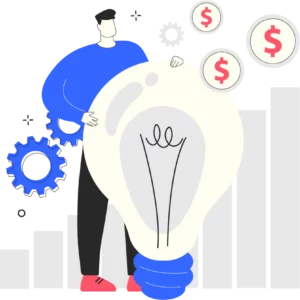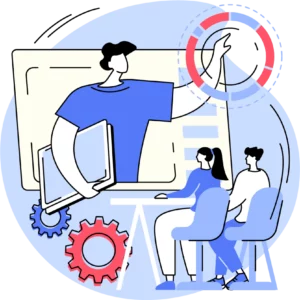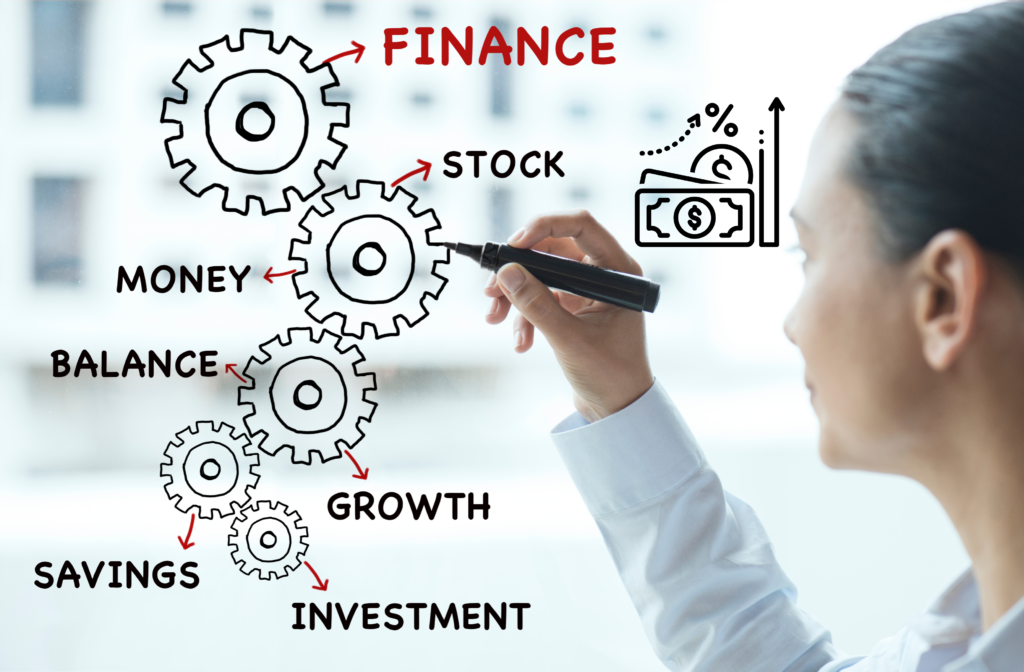Personal finance can be confusing. However, if 2023 is your year to find clarity in the chaos, we have you covered. We break down the crucial aspects of personal finance that have been on the minds of savvy Canadians everywhere.
We aim to empower you with financial knowledge and insights to boost your confidence in managing your personal finances. In addition, we want to help you reduce stress and enhance your financial well-being in 2023 and beyond.
Staff note: We apologize for the technical jargon used throughout this article. We do our best to simplify financial concepts without sacrificing context. Nevertheless, we do not want to misrepresent sources or marginalize our research, analysis, and findings.
The current political environment in Canada for Personal Finance
Realistically, anyone and their party could win the next federal election with a majority or minority government.
Creditpicks
Tweet
The political environment in Canada is becoming increasingly polarized. Prime Justin Trudeau has been in office for nearly eight years. Barring the unexpected, such as the Liberals and NDP dissolving their current minority government coalition, Prime Minister Trudeau remain in power until 2025 (Blatchford, 2022). He also indicated that he intends to run again in the next federal election (Scherer, 2023).
The opposition parties, namely the Conservatives, struggle to find ways to gain voter support. Voters feel that they cannot trust anyone anymore because they have been lied to by politicians on all sides of the political discussion. Realistically, anyone and their party could win the next federal election with a majority or minority government.
How politics may influence personal finance decisions and the economy

Canadians, especially women, are aware of disinformation and “fake news” and are careful about the data they consume. At the height of the COVID-19 pandemic, trust in the Canadian government fell to 22%. That number has risen to 37% in 2023 (Bell Media, 2023).
There is a common misconception that the Liberals spend more than the Conservatives. However, the truth is that the two major parties have different ways of boosting the economy. As noted in the next section, prime rate increases were needed to lower rampant inflation. Politically, this puts the Liberals at a disadvantage if inflation is not under control by 2025. However, in general, the Liberals opt to tax more (especially high-net individuals) and offer more government-driven services. Conversely, the Conservatives opt for tax credits to incentivize business owners to invest more in their operations.
As with every year since 2008 (except 2013), Canada’s federal debt will continue to grow. The consolidated provincial territories' debt peaked in 2020 and began to fall in 2021 (Statistics Canada, 2022). At the time of writing, the Consumer Price Index (CPI, also known as inflation) has fallen to 4.4% from a peak of 8.1% in 2022 (Statistics Canada, 2023). The Bank of Canada (BOC) has seemingly paused prime rate increases, peaking at 6.95% (Bank of Canada, 2023).
Key takeaways: We predict that the BOC will start to cut the prime rate in the fourth quarter of 2023. This will likely happen in quarter (0.25%) or half (0.50%) point cuts. These cuts will continue into 2024, with the prime rate eventually settling around 4% as we reach a stable inflation rate of around 3%. Even if a snap election occurred in 2023, this prediction would still hold, given that both major parties are responsible for reducing inflation and easing the prime rate if possible. We will see if these predictions age well.
Inflation and interest rates
Inflation refers to the increase in the prices of goods and services over time, which can lead to a decrease in the purchasing power of your money.
Creditpicks
Tweet
Inflation, its most common measure, the Consumer Price Index, and interest rates are tossed around the digital space without care. Many of the analyses we have read are written by “experts” with no expert background. That said, looking for credible media sources that cite their research (like Creditpicks) is vital to learn how it affects you.
What is inflation, and how does it impact interest rates?
Essentially, inflation refers to the increase in the prices of goods and services over time, which can lead to a decrease in the purchasing power of your money. On the other hand, interest rates refer to the cost of borrowing money, and they can significantly impact the amount of money you owe when repaying loans.
It is important to remember that inflation and interest rates are closely connected, as changes in one can influence the other. Understanding how these factors affect your personal finances allows you to make informed decisions and proactively protect your financial well-being.
Predictions for 2024 and strategies to deal with possible scenarios
In a recent EY Future Consumer Index Survey, 80% of Canadians have hunkered down for a prolonged financial squeeze, and 63% have low economic confidence (Elshurafa, 2022). We are currently seeing the CPI (inflation) dropping more rapidly than expected, meaning consumers are likely to start spending more as interest rates drop in parallel.
You may be asking, “Why do consumers start spending more?” The answer is that variable interest rates drop on numerous credit products such as lines of credit, mortgages, and more as the prime rate drops. Consumers are more willing to take on new credit with lower interest rates and spend on it accordingly. This, in turn, stimulates the economy and grows it. While we might see a recession, it will not be for very long (if at all).
By late 2024, Canadians will spend more as we head into the holiday season. By mid-2025, we may return to a pre-pandemic (late 2019) prime rate of 3.95% (Department of Finance Canada, 2023).
Please note that these are the Creditpicks team’s predictions only. These predictions should not be construed as financial advice, only the opinion of our site’s team. We are well-informed but also legally cautious.
Geopolitics and a possible recession scenario
We currently live in an unpredictable geopolitical quagmire. Whether it be post-pandemic recovery, runaway inflation and high-interest rates, or Russia’s unwarranted invasion of Ukraine, many factors outside our control can lead to economic disaster. The U.S. inflation rate currently sits at 4.93% (LLR Portfolio Companies, 2023). The US Bank Prime Loan Rate is 8.25% (LLR Portfolio Companies, 2023). Of course, we consider that the scale of the economy plays a significant role in the slower recovery than Canada.
Analysts are predicting a recession in the U.S. economy during the second half of 2023 and all of 2024 (Rasheed & Holzheu, 2023). This can easily bleed into the Canadian economy through a recessive Growth Domestic Product (GDP) in the United States or even the Bank of Canada following the U.S. lead in maintaining interest rates to tighten the credit market. In short, Canadians would again need to “tighten the strings” on their personal finances and likely deal with continued high-interest rates.
The current state of the Canadian economy

Above, we detailed many aspects of the current Canadian economy. Our economy is in full recovery and growth mode, and we lead the G7 in real GDP growth (Government of Canada, 2023). The unemployment rate is falling due to the most robust job market in decades. Most importantly, Canada has seen a 56% drop in impoverished people since 2015 (Government of Canada, 2023).
The stock market is showing strong growth. The S&P/TSX Composite Index, a Canadian benchmark index, is up nearly 60% since bottoming out in March 2020 at the beginning of the COVID-19 pandemic lockdowns (Alphabet Inc., 2023). Further, the Index’s five-year growth is nearing 25%. This information indicates a restored yet conservative investor confidence in the Canadian economy.
It is fair to be cautiously optimistic about Canada’s economic outlook. It's also fair to be cautiously pessimistic. It is a glass-half-full or half-empty scenario. While there are indicators that we are “almost out of the woods,” we must continue to be prudent with our personal finances, budgeting, savings, and investments.
Cost of living concerns – Personal Finance
Now we get into the fun information. Without question, we are all living in a much more expensive Canada. From coast to coast, every Canadian is paying more at the grocery store and for basic goods and services. The CPI measures the price change of a fixed basket of goods over time (Statistics Canada, 2023). Until October 2022, some prices have risen between 5% and 23%, year-on-year (Statistics Canada, 2022).
However, as it relates to groceries, there has been a shift to continued price raising even as inflation eases. This was recently defended by the Chief Executive Officers (CEO) of the three largest grocery store chains in Canada in the House of Commons (Boynton & Lord, 2023). A key takeaway was that the chains are focusing on running successful businesses that might be taking too much profit at the expense of Canadians. While this might seem natural for any business in their position, doing “the right thing” during economic constriction should be the main interest of these companies.
Tips for managing and planning around these costs
Creditpicks recently posted an excellent article about building a better budget. It is important to know how much money you have coming in, how much is going out, and how much you can use for discretionary expenses, savings, and investments.
We also discuss how never to be broke again. Focusing on the 50/30/20 rule, our article outlines the essentials of saving and investing money while living an enjoyable life. Our savings strategies are crucial in your twenties, given that what you do then will set you up for your thirties, forties, and retirement.
What can you do now to manage Canada's high cost of living? Some simple ideas might include the following:
- Ensure your home is energy efficient and enforce an energy consumption plan.
- Find or earn cheap gas. This is easier than you might think it is.
- Bundle your insurance to get the lowest rates.
- Bundle your internet and mobile services to lower your monthly bill.
- Buy in bulk at Costco or other big box stores.
- Grow your vegetables and herbs instead of buying them.
- Repair worn items instead of instantly replacing them.
These are just a few tips for setting a budget, adjusting it, and lowering your monthly and annual costs.
Job security
Canada’s job market is the strongest in decades (Government of Canada, 2023). However, the unemployment rate is beginning to stabilize (stagnate), and the labour force will become highly competitive as we enter 2024. Further, the effects of Artificial Intelligence (AI) are still to be determined, meaning that many roles may be made redundant in favour of AI automation.
Canada has a 2023-2025 Sustainable Jobs Plan (Government of Canada, 2023). It lays out additional information regarding job creation initiatives throughout every region of Canada.
Have a clear transition plan in place
While we recently wrote an article about managing your finances during job loss, we recommend fully considering your options before leaving a stable, secure position. That is not to say you should not follow your dream position or start a new business if you have the means. Our recommendation is solely based on recent experiences within our team and how these changes affect you emotionally, mentally, and even physically.
You should always have a clear plan for yourself and your family (if applicable) before you decide to leave your position for a new adventure. You should also include your family in this discussion because of the effects it can have on them. Candidly understanding your home situation is critical.
Housing affordability
The Canadian housing market has been nothing short of a rollercoaster ride in recent years. Skyrocketing prices, propelled by high-interest rates and inflation levels above the norm, have made homeownership seem like a distant reality for many. However, making a wise move in this daunting market is still possible with the proper knowledge and strategies.
Understanding that high-interest rates and inflation often lead to decreased home affordability is essential. High-interest rates can significantly increase the cost of a mortgage, while inflation can erode purchasing power—making it more expensive to buy a home.
Nevertheless, keep sight of your homeownership goals. One key approach to navigating this challenging environment is to focus on saving a larger down payment. A bigger down payment can decrease the amount you need to borrow and reduce your exposure to high-interest rates. This strategy requires discipline and patience but can pay off significantly in the long run.
Consider locking in a fixed-rate mortgage. While these are typically higher than variable rates in a low-interest-rate environment, they provide certainty in your repayment amount, protecting you against future rate hikes.
Unconventional homeownership is growing in popularity
Consider less conventional options like co-ownership, which involves purchasing a property with a friend or family member. This can make the cost more manageable but ensure a clear agreement to prevent disputes.
Beautiful rural or small-town Canada might be an option
Finally, look beyond the city centres. Suburban or rural areas often offer more affordable housing options. While this might mean a longer commute, the trade-off might be worth it in terms of home affordability.
The current housing market poses challenges. Do not rush. Take time to assess the market, understand the risks, and review your financial situation regularly.
Saving and investing – Personal Finance

Understanding how to save and invest effectively has never been more critical in this climate of high-interest rates and above-average inflation. Canadians are saving for various goals, including down payments for homes, retirement, children's education, and emergencies. However, the challenging economic landscape may make these objectives seem unattainable.
Let us address the elephant in the room: high inflation. While inflation often devalues cash savings over time, a high-interest-rate environment can provide some opportunities for savvy savers and investors. You may consider the following strategies:
- High-interest accounts: Despite the high inflation, a high-interest savings account can still be an effective tool for short-term savings goals or emergency funds. The interest can help offset the erosion of purchasing power due to inflation.
- Bonds and GICs: Bonds and Guaranteed Investment Certificates (GICs) often offer higher returns in a high-interest-rate environment. While they may not offer the same potential returns as equities, they can provide a safer way to grow your savings.
- Tangible assets: Real assets like real estate and commodities tend to hold their value or even appreciate during periods of high inflation. These can be accessed through direct ownership or investment funds.
- Inflation-protected securities: Inflation-protected securities are designed to help investors keep up with the pace of inflation. The principal of these securities increases with inflation, providing an effective hedge.
- Stocks: Although the stock market can be volatile during high-interest rates and inflation periods, specific sectors may outperform. For instance, companies with strong pricing power that can pass higher costs onto consumers may be more resilient.
- Regular review: Regularly reviewing your investment strategy is essential. Make sure your investments align with your risk tolerance and financial goals.
Every person’s financial situation and risk tolerance is unique. It is essential to consult with a financial advisor or do thorough research before making investment decisions. This high-interest, high-inflation environment may be challenging, but with careful planning and strategic investing, you can continue to work towards your financial goals.
Personal finances and mental health
Navigating a high-interest, high-inflation market can affect anyone's mental health. Even in such challenging times, maintaining a positive outlook is crucial for our mental well-being and effective financial decision-making.
The link between financial health and mental health is bidirectional. Financial stress can lead to mental health issues like anxiety and depression, and vice versa. Hence, tackling this issue head-on is essential as adopting strategies to manage both. Here are some practical ways to maintain a positive outlook and sound mental health in the face of financial uncertainties:
- Stay informed, not obsessed: Keep up to date with financial trends and market conditions but avoid obsessively checking market news or your investment portfolio. Overconsumption of information can lead to stress and panic decisions.
- Financial literacy: Understanding personal finance, inflation, and interest rates can remove some of the fear and uncertainty. Educate yourself through websites (such as Creditpicks), books, webinars, and courses, or consult a financial advisor.
- Practice mindfulness: Mindfulness and meditation can help you stay grounded, reduce stress, and make more rational decisions. Try to incorporate it into your daily routine. As cliché as it may sound, meditation is food for your soul.
- Maintain a balanced lifestyle: Regular exercise, a healthy diet, and adequate sleep can significantly impact your mental health and, by extension, your financial decisions.
- Seek professional help: If financial stress is overwhelming, do not hesitate to seek help from a mental health professional. Therapy or counselling can provide you with strategies to cope.
- Have a plan: A well-structured financial plan can provide a roadmap to navigate uncertainty. It gives a sense of control and direction, helping to alleviate anxiety.
- Remember your goals: Remember the long-term nature of your financial goals. Market conditions fluctuate, but focusing on your long-term objectives can help maintain perspective.
- Foster a support network: Discussing financial concerns with trusted friends, family, or personal finance professionals can help you feel less isolated and provide different perspectives.
Financial health is an integral part of overall well-being, and managing your mental health is equally important as managing your personal finances. Adopt these strategies with resilience, positivity, and sound decision-making skills during challenging financial situations.
Conclusion
It is important to remember that every economic challenge also presents opportunities. The current climate of high-interest rates and elevated inflation may seem daunting. However, equipped with the right tools, knowledge, and strategies, it is possible to navigate these challenges and make intelligent financial decisions.
Financial management is not a one-size-fits-all journey. It is a personal path tailored to your needs, goals, and circumstances. The key is to stay informed, make strategic decisions, and maintain a long-term perspective. Doing so allows you to manage your personal finances effectively, bolster your economic resilience, and remain mentally healthy amidst financial uncertainties.
Remember, the aim is not just about surviving in this high-interest and high-inflation environment but thriving in it. We hope this guide empowers you to take control of your finances and reinforces your financial confidence. Let us make 2023 and 2024 years of informed decisions and financial growth.




